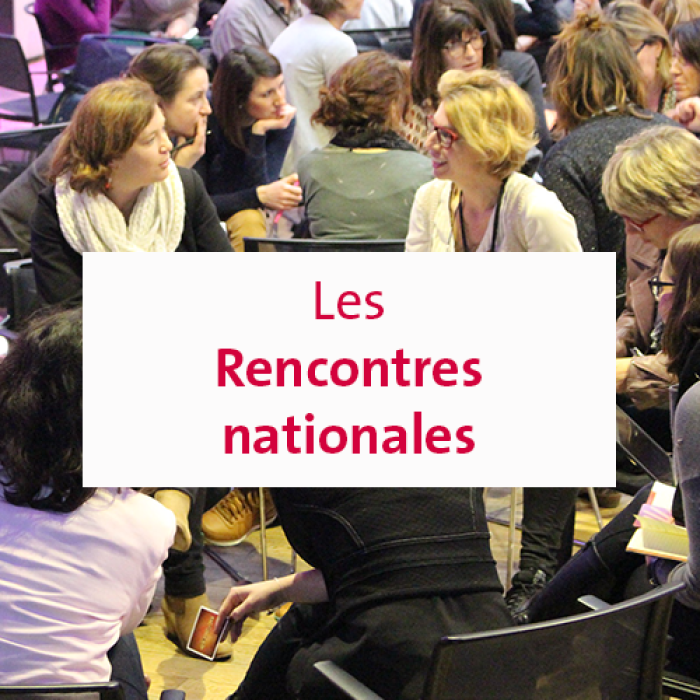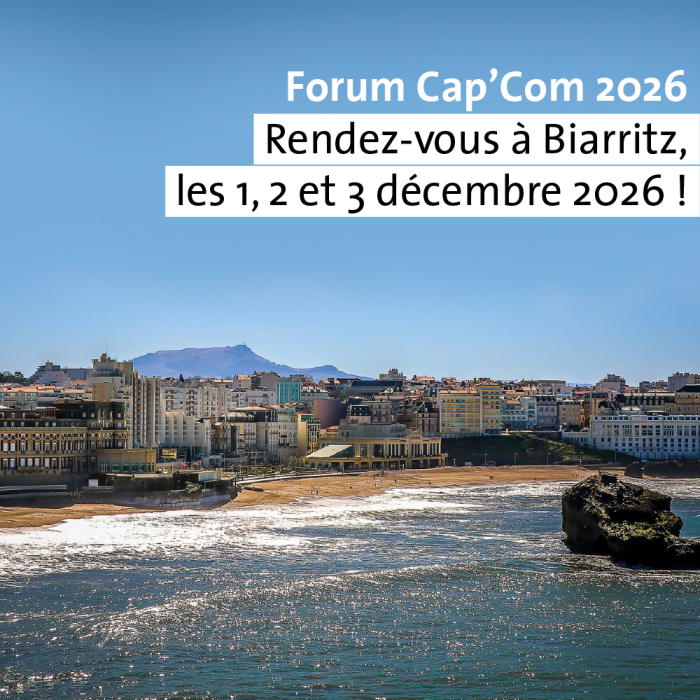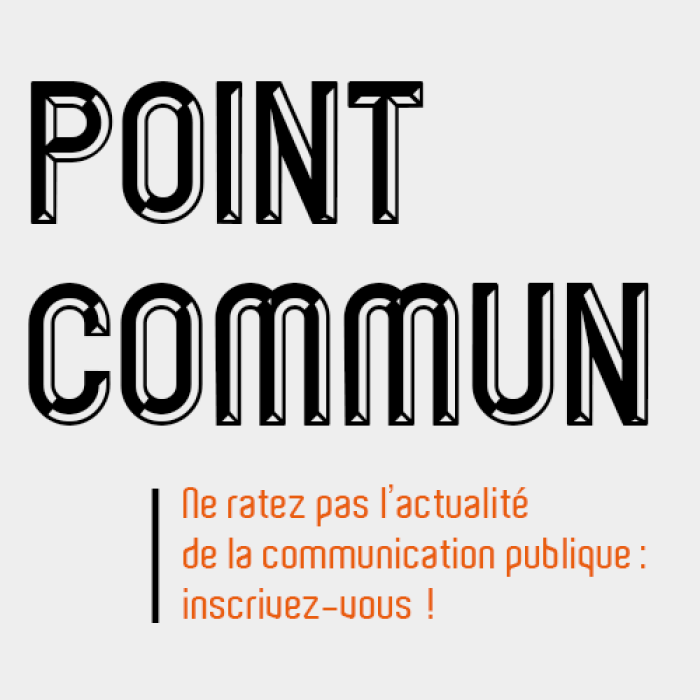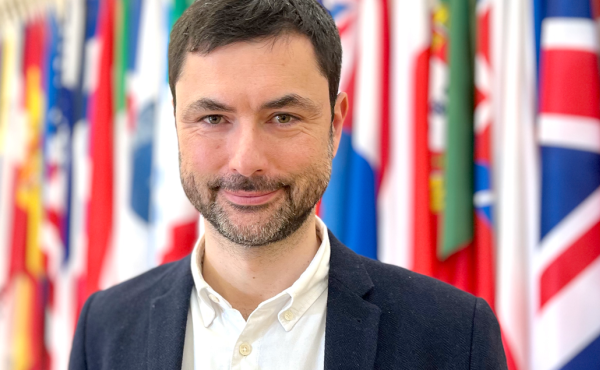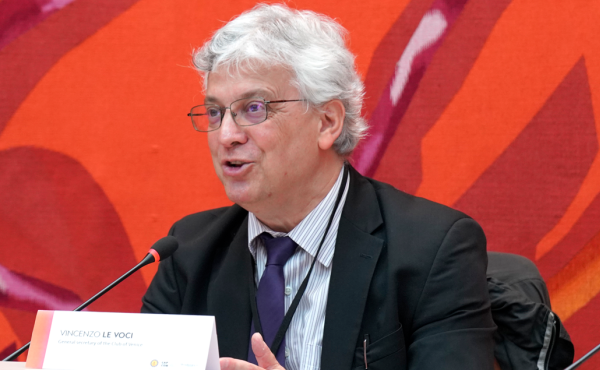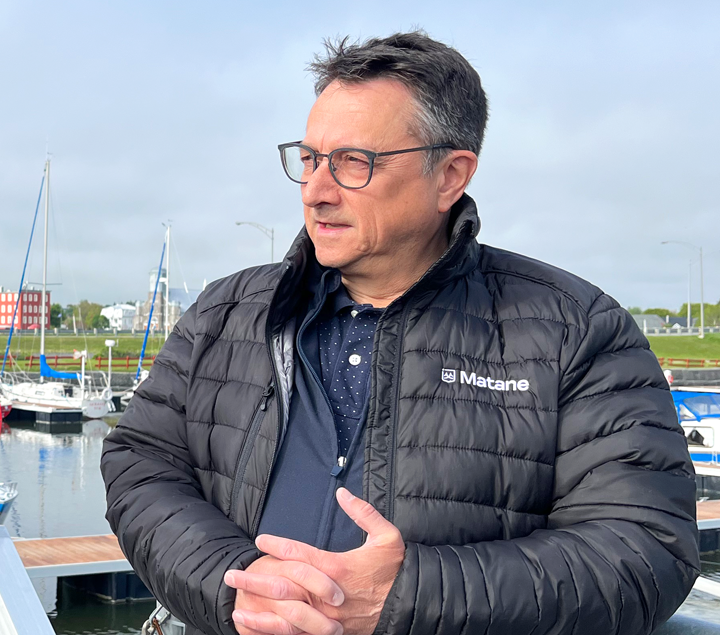
How a mayor in the great outdoors of La Matanie naturally communicates
He applies a project-management method drawn from his industrial engineering background and turns it into a major asset: on the shop floor, he asks everyone for their opinion, then calls on a team to impart a new regional dynamic. We met Eddy Métivier, the mayor of Matane, on the banks of the Saint-Laurent in Quebec.
Eddy Métivier worked in major establishments as head of engineering and maintenance for 30 years in Quebec. He drew up a business plan for Matane airport. The project was presented to the Government of Quebec, which drew on it to create a programme for the municipal and international airports in Quebec. Five years later, he became mayor. He tells us how he draws on his experience as a manufacturer in his functions as a councillor and his interactions with communications specialists.
Point in common: How did you come to grips with the function of mayor?
Eddy Métivier: In 2017, I ran as a town councillor. I was able to bring my vision of things, and at the same time understand the political scene and the issues at stake in the laws and codes. I discovered the extent to which our hands are tied. Legally, there are lots of constraints that, while correct, take a lot of patience. With my background in engineering, I can explain things to people in terms they can understand. And I have to explain the constraints under which we work, which don’t make councillors’ job any easier. In recent times, many councillors have been resigning because of the pressure from citizens.
Point in common: Elected representatives here, too, are throwing in the towel because it has become difficult and because it’s a role in which you’re exposed. Do you think that communication is a remedy for this?
Eddy Métivier: Communication - both talking and listening - is essential in our hectic modern-day lives. We need a very solid team to back the mayor. All that goes faster, and together, it goes further. For a mayor, there needs to be strong synergy with the communications team and the local council team as a whole.
Cap’Com at the annual ACMQ congress
The 2025 congress of the ACMQ – the Quebec association of local broadcasters – is currently being held in Victoriaville (from 28 to 30 May). Its overarching theme is “Proudly sustainable”. For our colleagues in Quebec, sustainable development is not confined to protecting the environment: it encompasses land-use management, quality of life, a responsible economy, resilient infrastructures, the reduction of inequalities, accessibility and much more. It is citizens who care about their living environment, and communications to inform them and enlist their support. Didier Rigaud-Dubaa, sits on the cooperative council, where he represents Cap’Com.
I may know things and have a plan, but who will understand my design?
Who will maintain it?
Point in common: Are you talking about dialogue, listening, and reaching agreement within your team?
Eddy Métivier: Yes, everyone has a part to play. For my part, with my 30 years’ experience in industry and factories, and for the type of work I did as project engineer, my strong point was going to build something “on the shop floor”. I used to say to myself: “I may know things and have a plan, but who will understand my design? Who will maintain it? Who will make it work the way I intended it to?” The main people concerned will be the mechanics, the operators and the electricians. So I got them involved in the design process as early as possible. And they said to me: “Eddy, this is the first time someone has come to see me and ask us for our opinion.” As a result, these people were very supportive of my projects. Since going into politics, before I make decisions, I like to understand, to “walk around the shop floor”, then find the information that will help me make an enlightened decision, grounded in facts and objective data (rather than subjective perceptions). It might be due to my Cartesian engineer side. On the other hand, though, my musician side brings me balance with the possibility of improvising!
Communication helps me avoid being perceived as a mayor who is ‘upstairs in his office’ and not readily accessible.
That’s the school of thought I put into practice in the city. I like asking the people around me for their opinions. But for a broader “shop floor” approach, from the firefighters to the plough operators, this is where the communications team shines. It helps me avoid being perceived as a mayor who is “upstairs in his office” and not readily accessible. Accessibility is a major issue.
Point in common: This communication is not there to shine a spotlight on yourself.
Eddy Métivier: Yes, exactly. There may be communication about you as a political figure or as mayor, and this communication also holds general interest. Because an elected representative is also a spokesperson. But we also inform through the communications department. We educate and inform. We work for the community as a whole. That’s right. There are also projects with a rural focus in which the communication entails going out to find citizens, to inform them and to equip them to take action. We drew up what we call the participatory budget. For two years, we make a half a million available for citizens to develop projects. People bring their ideas and take part in the evaluations and estimations with our task forces. After that, the population comes to vote for their choice of projects. We’re up to our 8th edition.
Point in common: What use do you make of the tools for connecting people, consultations, presentations and online voting?
Eddy Métivier: Not everyone here in the regional areas is familiar with or comfortable using digital media. We always keep the print media alongside the Facebook pages and websites so we can generate this enthusiasm for the participatory budget, among other subjects.
Point in common: You’re a broadcaster yourself. Do you broadcast on the web?
Eddy Métivier: There are others that are better than me. I’m not assiduous enough on Facebook. That’s one of the points the mayor should improve in order to boost his visibility a bit! But being a city-centre mayor is a full-time and very demanding job. You need to have time for that. I place greater priority on my duty to the citizens. I want to make sure that the city works, that the teams work, that everything functions. And if not, look for solutions when there’s a lot at stake. I leave the social media aspect to one side.
Point in common: So how is this communication function organised in the city of Matane?
Eddy Métivier: I generally work with the chief executive or her assistant to gain an overview, then Anne or Alice trains the communications team. My colleague from the Regional County Municipality (RCM), Gérald Beaulieu, préfet [president] of La Matanie, does likewise with Kim. And quite often the central city and the RCM work in synergy. That is another aspect that Gérald and I are developing with regard to relations among local authorities. I work extensively with my communication officers. But if I have anything specific to ask them that might represent an additional workload, I refer the matter to the director-general of services to avoid interfering with the administration’s operations. However, I will go to see the staff to talk to them, consult them, sense the general feeling and gather their opinion. That’s very important in my eyes.
Point in common: We can see that there are major industrial, economic, societal and regional development issues here. How can communication help you carry out your projects?
Eddy Métivier: The main goal is to manage to explain the changes to citizens in readily-understandable terms. For example, when we talk about brand image, it’s important to realise that the end of the shrimping business posed a huge challenge and sparked a severe crisis here in Matane. And all that people could see was the logo. Whereas the brand image is a new way of doing business and demonstrating our energy and drive. It’s a meeting point for managing to work as a team, to achieve new objectives. On a regional scale, we really need to roll up our sleeves if we want to show that we have something to offer. And there are businesses that want to set up base in our region! There is a German company that is going to establish its business in our region, which will represent 240 employees. The media in the Montréal region and the major centres asked me: “How will you manage to attract that many employees to your area?” I replied: “Yes, of course there’ll be newcomers. In these regional areas, you’re only five minutes from everything.” It’s in stark contrast to the hour and a half you have to travel morning or evening when you’re in city traffic, instead of spending that time with your family and loved ones (or your leisure activities). You can even go home for lunch.
Today, people are moving to regional areas to enhance their quality of life. That’s the angle on which our communications will focus.
C'est un enjeu de qualité de vie, un atout que les régions ont. Et ça, depuis la pandémie, ça a éveillé des vocations chez des gens. Et It’s quality of life that is at stake, and the regions can deliver that. Since the pandemic, it’s given people ideas. Not only that but the market price of homes in the region is three to four times less expensive than prices in a major city. Today, people are selling their home, putting a bit of money into their pension, and moving to regional areas to enhance their quality of life. That’s the angle on which our communications will focus. It’s a major plus point for our regions, but we need to publicise it. This is where our communications people are valuable assets, because they push the mayor or the préfet [president of the interco] to issue messages highlighting the regions’ attractiveness.
And the local authorities here are investing in new tools. We are fortunate enough to have a deep-water port and natural resources. But there’s also the enjoyable lifestyle in our region! For example, we’re very proud of the La Matanie farmers’ market. We had to persuade the local councils in the vicinity. It’s a way to support our local producers and locally-grown products with a view to not only stimulating the circular economy but also attracting visitors. Our market hall is situated on street 132, which is popular with tourists. Tourists would not have ventured as far as the sports centre, our arena, which formerly housed the public market. Now, though, people say “Wow, it’s really beautiful. Wow, there are lots of people. Let’s stop off here!” They go to see the Matane River, stroll along the Captains’ Promenade and the river, and visit the islands park (for which the city of Matane recently won two prizes)...

